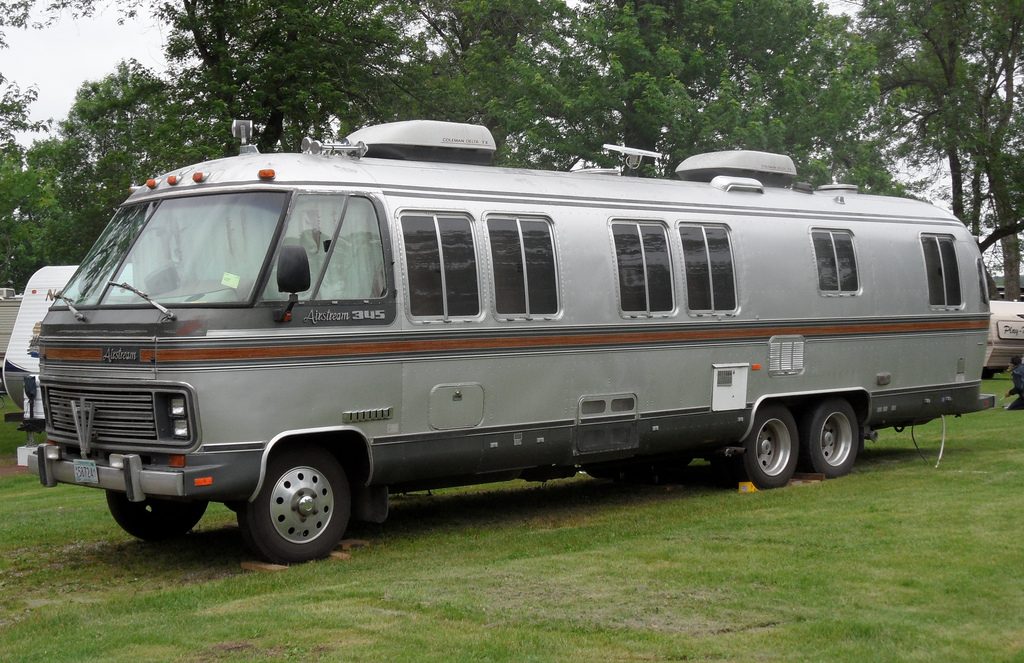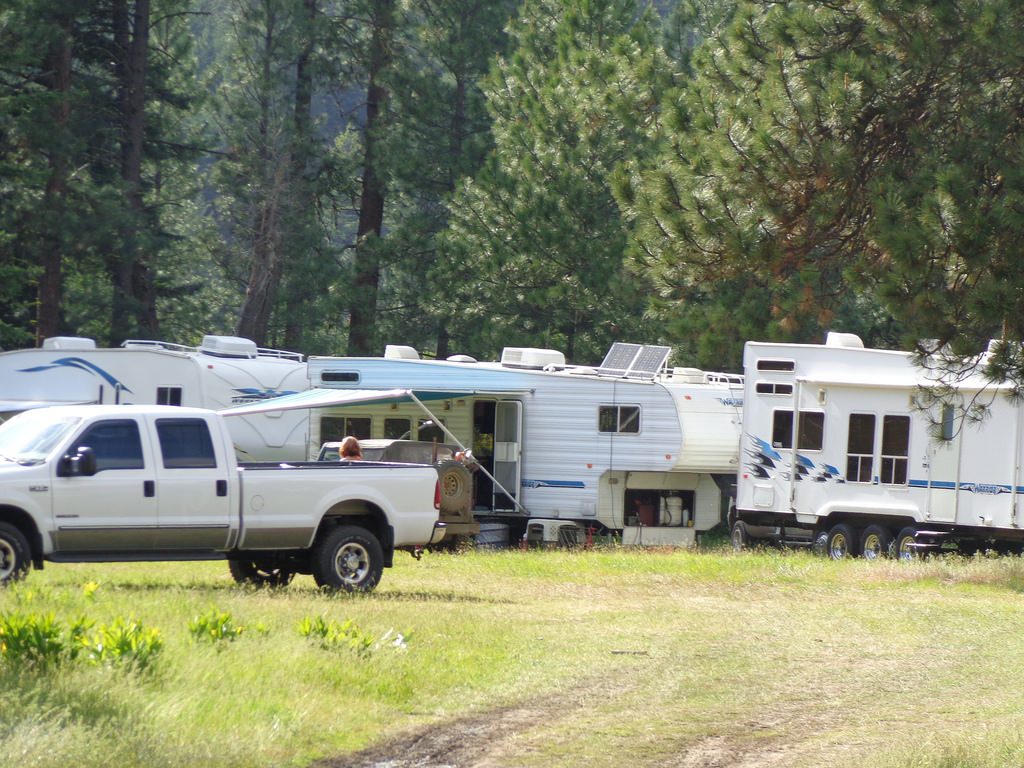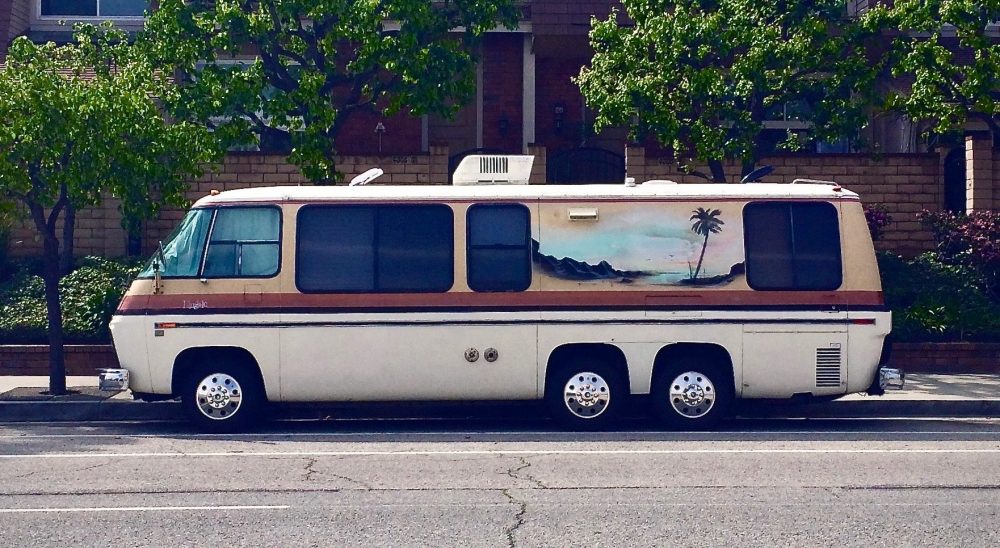Whilst travelling in your RV, comfort is crucial and the temperature inside the RV will play a huge part. Without a fully functioning RV air conditioner, both driving and sleeping in the hot summer months can be very uncomfortable
The best RV air conditioner is the Dometic Brisk II, which has the option of a 15,000 or 13,500 BTU capacity and uses a high performance fan and motor for cooling.
In terms of the different types available, the RV rooftop air conditioner is by far the most popular as its out of the way on the roof and they provide excellent performance. They do come at a cost and you will need to invest a sizeable amount for the best.
Table of Contents
Best RV Air Conditioner Systems
| RV Air Conditioner | BTU Per Hour | Color |
|---|---|---|
| Dometic Brisk II | 15,000 or 13,500 | Black or White |
| Coleman Mach 15+ | 15,000 | White |
| Dometic Penguin II | 13,500 | Black or White |
| Atwood 15027 | 13,500 | White |
| Coleman Mach 3 | 13,500 | White |
When shopping for an RV air conditioner, you will notice there are some that are ducted and others that are not. Ducted units are the most popular and all the components are enclosed in a casting that simply bolts to the roof of the RV. Unlike a non ducted unit, it does not need to be mounted via a hole in the roof and it also doesn’t require the bulky control setup either thus saving room inside the RV.
Some RV’s may even require more than one and its recommend that your RV is over 8 meters, you may require an additional RV air conditioner to cope with the size.
The capacity of the AC unit is measured in BTU (British Thermal Units) and the higher the value, the more cooling power. Below is a list of the best RV air conditioners that provide high performance cooling and can be installed fairly easily.
Dometic Brisk II RV Air Conditioner
The Dometic Brisk II Polar White is one of the best air conditioners for RVs on the market. The Dometic brand makes products that are designed specifically for RV use, and this air condition is no exception. It is durable and very easy and quick to install.
It also does a great job of cooling your space down very quickly because the motor and fan are both incredibly powerful. It does make some noise when in use, so that’s important to consider when making your purchase.
Here are some of the specs of the Dometic Brisk II Polar White rv air conditioner:
- Capacity options of 15,000 BTU or 13,500 BTU per hour
- 115 volt air conditioner that uses 60 HZ and one phase
- Dampening brackets tone down the noise
- Comes with a two-year warranty
The Dometic Brisk II also comes in a black version for those that are not a fan of the white. It doesn’t take up much space and is durable enough to handle life on the road. It’s an excellent air conditioning option for the avid RV traveler.
Check it OutColeman Mach 15+ RV AC Unit
The Coleman Mach 15+ is another great RV roof air conditioner that is perfect for mobile living. Although it is larger than the Dometic Brisk II, it still fits perfectly into a 14 by 14 vent space. Below are some of the features of the Coleman Mach AC unit.
- 115 volt unit that uses 1800 watts and 60 HZ
- Cooling and heating capacity of up to 15,000 BTU per hour
- ⅓ HP fan motor circulates air at 325 cubic feet per minute
The Coleman Mach 15+ is the best RV air conditioner for large RVs that need lots of air power. It is considered to be one of the most powerful units available for mobile homes. It is very durable, so it’s excellent if you put lots of wear and tear on your RV.
Check it OutDometic Penguin II RV Rooftop Air Conditioner
The Dometic Penguin II is another RV AC unit option from the Dometic brand. It is designed specifically to be low profile on top of the roof, so it is a wonderful option if your RV is very tall and you don’t want to add any extra height to it.
The design is very efficient and looks sleek and the device comes in both black and polar white. Here are some of the notable features of the Dometic Penguin II low profile rooftop air conditioner.
- 13,500 BTU per hour
- Fits in a 14 by 14 air conditioner opening
- Rated for 120 volts and 60 HZ electrical use
- Comes with Dometic’s standard two year protection
The Dometic Penguin II is an excellent low profile RV air conditioning unit. The design allows you to drive through tunnels or under trees without worrying about any damage to your AC unit. It also results in a much more sleek look for your RV, and it can actually increase your RVs efficiency while driving.
Check it OutAtwood Ducted RV AC Unit
The Atwood AC Unit is perfect if you need a ducted option for your RV. It is very small and light, so it won’t add extra drag on top of your RV. Here are some of the features of the Atwood Ducted AC Unit.
- 13,500 BTU per hour cooling capacity
- Light design only weighs 6 LBS
- Fits into a standard rooftop vent
This is a very standard RV air conditioner that’s simple and convenient. It’s durable even though it is very light and is the best option if you need a ducted RV air conditioner system compared with the alternatives.
Check it OutColeman Mach III Power Saver RV Air Conditioner
The Coleman Mach III is another great option from the brand, which is known for their RV products. It has a power saving option, which is great if you don’t have much extra energy to spare for your AC as well as being better for the environment.
It has a similar design to the other Coleman AC units for RVs. Here are some of the specs of the Coleman Mach III.
- 13,500 BTU per hour
- Two speed options for better cooling
- Nine pin connector makes the unit very easy to install
- Starts even in extreme heat because of its efficiency
The Coleman Mach III is a great choice if you need an energy saving air conditioner. It’s also perfect if you spend a lot of time in very hot conditions that might normally be damaging for an air conditioner.
Check it OutRV Air Conditioner Buying Guide
If you travel in very hot conditions, you need an air conditioner unit for your RV in order to drive and sleep comfortably. Although it does use up some of your power source, it will keep you comfortable and allow you to make the most of your travels, instead of just trying to deal with the heat.
Before you purchase a powerful RV air conditioner, its advised that you check your battery first. Using a deep cycle RV battery will ensure that the AC unit you use will always have power to keep you cool.
RV air conditioners are a big investment, so it’s important to make sure the one that you are getting is a good option that will last you a long time. Here are some of the factors that you should keep in mind when shopping for an RV air conditioner.
Cooling Power
The first thing to keep in mind when shopping for an RV air conditioner is the cooling power. This is measured in BTU, which stands for British Thermal Unit.
A British Thermal Unit is a unit of energy that isn’t often used in other contexts, but one BTU is equal to the amount of energy it takes to cool a pound of water by one degree Fahrenheit. The more BTU an air conditioner has, the more cooling power it has.
Typically, RV air conditioning units come in either 13,500 or 15,000 BTU options, but you may see some products that offer more or less cooling power.

Ease of Installation
The ease of installation is another factor to take into consideration when shopping for an RV air conditioner. RV air conditioners should be very simple to put into your car, and you don’t want to have to spend too much time fussing with wires and plugs.
The air conditioner should come with detailed instructions on how to install it. You may have to look at your vehicle’s owner’s manual to see if there are any specifics that will affect how an AC unit is installed.
If you are struggling to install your AC unit, there are many online tutorial videos and written guides that can help you. Some people also opt to pay extra installation fees to have a professional install their unit. While this is very convenient, you may not always be able to get the help of a professional while
Size
The size of the AC unit is also something to look at. An average opening for an AC installation on an RV is 14 by 14 inches. If the AC port on your vehicle is different, you will need to look for a specially made unit to fit into it.
You should also look at the overall profile of the AC unit. If you are using a roof RV air conditioner, you will need a low profile air conditioning unit. This is a sleek unit that sits closer to the roof of the vehicle.
If the unit is too large and adds to much height to the RV, it may make it difficult to drive effectively. An AC unit that is too large also may have the issue of creating drag on your vehicle as you drive. This can make it hard to get the mileage you are looking for out of your car when you need it.
Maintenance Level
In addition to being easy to install, your air conditioner should also be easy to maintain. Look at the overall durability of the product by considering the material it is made out of and the quality of the mechanical construction.
You should also look how often you will need to clean the air conditioner or change the filter at all. Ideally, you shouldn’t need to do any major repairs or make changes on the AC unit while you are traveling, as this can be very inconvenient.

Power Use
You should also consider the power usage of the AC unit when making a purchase for your RV. Depending on the type of power source you have, you may only be able to use an AC unit that uses up to a certain amount of power. Look in your owner’s manual to determine how much power your AC unit can use. This is typically measured in voltage and watts.
Ducted vs. Non-Ducted
Some RVs are set up for ducted air conditioning systems, while others are not. You should check your owner’s manual to see which is most appropriate for your car.
Ducted AC units do not have a large control unit that hangs down into the roof of your vehicle, but instead are controlled separately with a control panel. A non-ducted AC unit fits directly into the vents of the car.
Many people choose to use non-ducted AC units with RVs because they are usually much easier to install. However, a ducted AC unit provides you with more space, and you can control it more conveniently with a control panel.
Rooftop vs. Bench
There are two different types of RV AC units, a rooftop unit or an under bench unit. Rooftop units tend to be more popular, as they don’t take up extra space inside the vehicle.
However, you will have to get up onto your roof to install it, and they can create extra drag while you are driving. They also tend to be more powerful. Under bench units are convenient if you have extra space under one of your seating areas and you want your AC unit to be very easy to access. Most of the best AC units for RVs are rooftop units. If you are worried about the extra space on top of your roof, try looking for a very low profile unit.
Thermostat
Some AC units for your RV come with a thermostat attached as well. A thermostat is very helpful, because it gives you multiple levels of cooling power to choose from. It will also show you the current temperature inside your RV.
Some AC units are also wired for heating as well, which is helpful if you travel in both hot and cold climates. They do this by using a heat pump, which can provide heat for your vehicle without adding any extra space. While this isn’t an essential feature for an RV air conditioner, it is a helpful one that definitely adds value to your AC.
Noise Level
Some AC units can be very noisy while they are running. This can be very frustrating, particularly if you are trying to have a conversation or concentrate on work while you are in the RV. Look for an AC unit that has noise dampeners inside to lessen the overall effect of the noise while it is running.
Conclusion
If you travel in hot areas of the world, it’s always helpful to have an air conditioner in your RV. A good air conditioner will help you better enjoy your travels, without having to deal with the discomfort of hot weather.
Since air conditioners for your RV are a big investment, you will want to make sure you are spending your money on one that will last you for a long time. Use the tips provided in this buying guide to ensure that you are choosing the best option for your needs.






